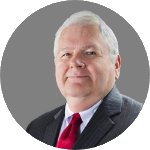Recently, Florida healthcare executive Philip Esformes was sentenced to 20 years in prison for organizing an outrageous $1 billion Medicare scam. Testimony during the trial showed that he operated a group of assisted living facilities and nursing homes in South Florida and that he had used bribes and kickbacks to increase business at his facilities.3
Although this was one of the biggest Medicare schemes ever prosecuted, it’s hardly unique, nor is it an isolated incident. According to the National Health Care Anti-Fraud Association, healthcare fraud costs the government tens of billions of dollars every day.
Equally shocking is the fact that perpetrators can include doctors, nurses, hospitals, administrators, pharmacies, drug and medical device manufacturers, and laboratories. The bad news is that you are probably one of the millions of U.S. taxpayers whose money has been misappropriated by these fraudsters.
The good news is that you may be able to do something about it.
What is healthcare fraud?
Healthcare fraud is generally defined as any intentional act of deception or misrepresentation within the healthcare industry that results in an unauthorized and/or illegal benefit to the perpetrator. In most cases, an insured individual or health service provider transmits inaccurate information to an insurance company in order to realize a financial gain. It’s a practice that can take many varied forms, nine of which are reviewed below, as they are the most common.
- Performing unnecessary treatments – The practitioner performs unnecessary tests on you solely so they can bill your insurer. It may mean an extra MRI or CT scan or taking samples from you that will cost you more.
- Falsifying diagnoses – The practitioner lies about your diagnosis so that they can claim payment for more costly tests and procedures.
- Phantom billing – Doctors and other healthcare providers will bill for services they never provided, using either a real patient’s information or a false identity created to make claims.
- Upcoding – This form of healthcare fraud involves billing for a more expensive service than the one actually provided. Patients are also affected by this practice because their falsified medical records can prevent them from getting the insurance coverage they need.
- Unbundling – Unbundling allows the practitioner to bill all aspects of your treatment as separate procedures, thereby increasing the reimbursement total.
- Co-pay fraud – You are billed for more than your actual co-pay, which is stealing money from your pocket. This type of healthcare fraud also includes waiving co-pays and overbilling your insurance carrier.
- Kickbacks – Unethical physicians have been known to accept money or bribes (aka “kickbacks”) from pharmaceutical manufacturers to exclusively prescribe their drug to treat patients. Healthcare providers have also been known to accept kickbacks for patient referrals that will involve unnecessary treatments and insurance payments.
- Misrepresenting non-covered treatments as “medically necessary” – This type of fraud is often seen in cosmetic surgery scams. For example, a surgeon could bill a nose job as a form of “trauma repair” to your insurer when it may have been a purely cosmetic surgery.
- Pharmacy fraud – Pharmacists have been known to dispense less medication than the amount prescribed and paid for.
How healthcare fraud affects you
Healthcare fraud takes hard-earned dollars each year from U.S. taxpayers. Medicare, for example, is funded via a payroll tax covered by employers and employees. When theft and fraud deplete financial resources, your taxes go up. If your business has a company-rated health plan, fraudulent billing practices impact your claims history and, by extension, your rating and premiums. If you insure your own plan, then scammers are stealing directly from you.
Contact a Carolina Whistleblower Attorney
Healthcare fraud has reached epidemic proportions in this country. $2.5 billion of the $2.8 billion recovered by the Department of Justice last year for fraud involved the health care industry. The majority of it goes undetected, which is why courageous whistleblowers like you are desperately needed to recover this stolen money.
If you are aware of fraudulent practices at your healthcare organization and are anxious to do what’s right, let’s talk. Our Carolina Whistleblower Attorneys counsel, support, and represent patriotic individuals in qui tam actions under federal and North Carolina laws. To schedule a free, confidential conversation, contact us or call 1-888-292-8852.
Similar Articles
Healthcare Fraud | March 07, 2024
Medicare Catheter Fraud Could Cost the Public $2 Billion
On January 9, 2024, The Washington Post and The New York Times reported on a...
Healthcare Fraud | March 16, 2023
What Is a Healthcare Kickback?
Each year, the Department of Justice’s False Claims Act recoveries are mostly from fraud in...
Healthcare Fraud | October 05, 2022
NC Healthcare Fraud Case Underscores Need for Whistleblowers
On June 23, 2022, the Department of Justice announced the indictment of a Charlotte-area physician...
Contact the Carolina
Whistleblower Attorneys
If you’re wondering if it’s a good idea to speak with a whistleblower lawyer about what you know, let us set the record straight.
- Corporate ethics hotlines can be risky and may lead to termination. If you’ve already done this, call us immediately.
- Your coworkers could be aware of the fraud – or complicit in it – and you should not talk to them about it.
- The first claim to be filed under the False Claims Act can proceed – if you’re not first, you’re at a serious disadvantage and may get nothing (another reason not to speak to your coworkers about it).
- A confidential discussion costs you a few minutes, but could save you time, stress, and money.
"*" indicates required fields
